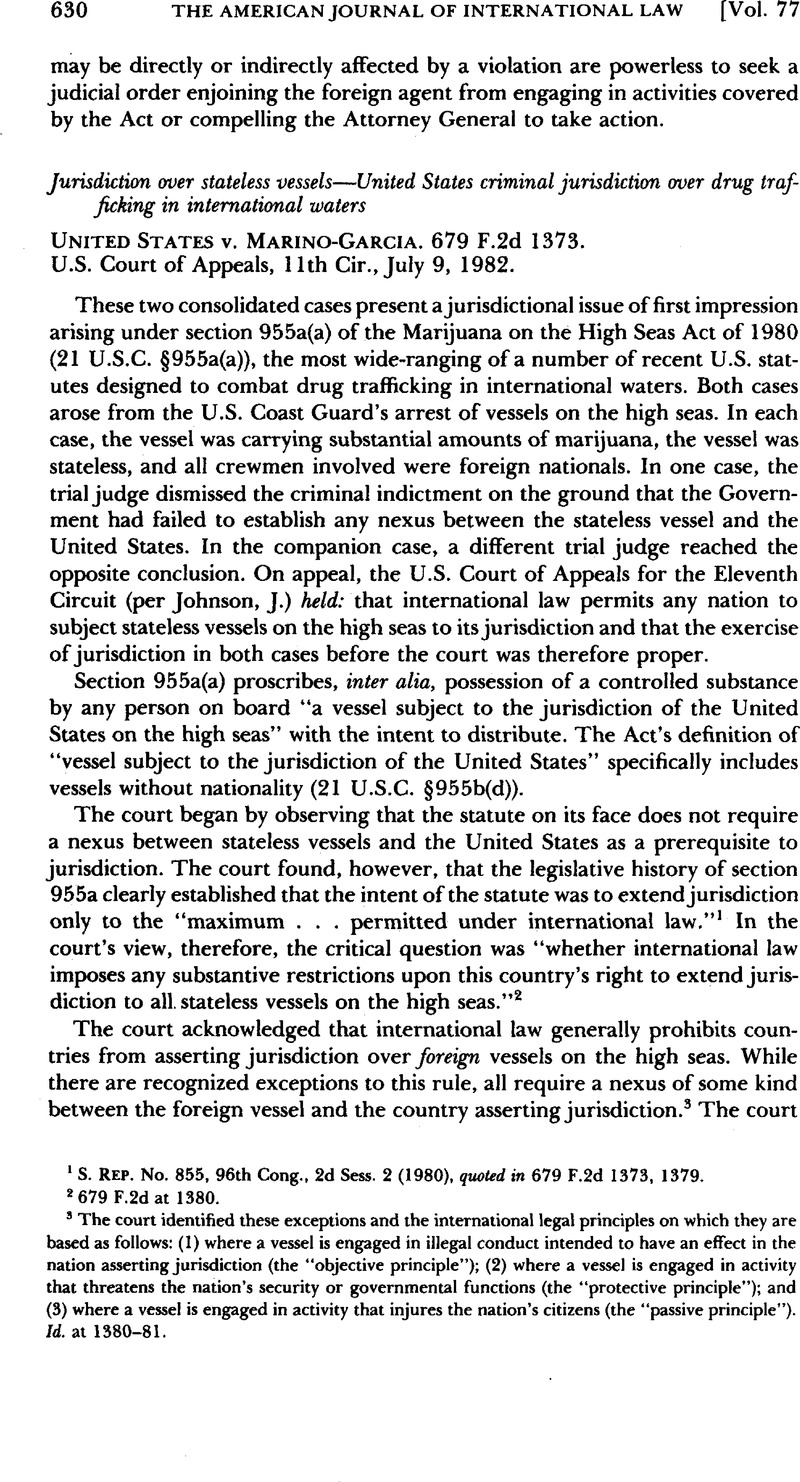No CrossRef data available.
Published online by Cambridge University Press: 27 February 2017

1 S. Rep. NO. 855, 96th Cong., 2d Sess. 2 (1980), quoted in 679 F.2d 1373, 1379.
2 679F.2dat 1380.
3 The court identified these exceptions and the international legal principles on which they are based as follows: (1) where a vessel is engaged in illegal conduct intended to have an effect in the nation asserting jurisdiction (the “objective principle”); (2) where a vessel is engaged in activity that threatens the nation’s security or governmental functions (the “protective principle”); and (3) where a vessel is engaged in activity that injures the nation’s citizens (the “passive principle”). Id. at 1380–81.
4 See, e.g., Convention on the High Seas, Art. 6, 13 UST 2312, TIAS No. 5200, 450 UNTS 82; United States v. Monroy, 614 F.2d 61, 64 (5th Cir.), cert, denied, 449 U.S. 892 (1980), summarized in 74 AJIL 942 (1980).
5 679 F.2d at 1383.
6 Ibid, (emphasis in original).
7 Id. at 1378 n.4.